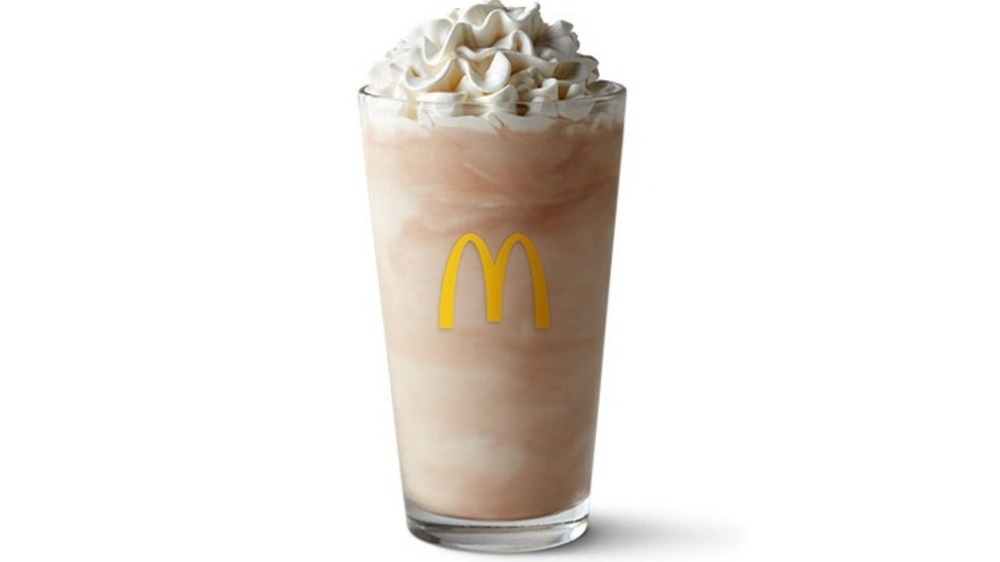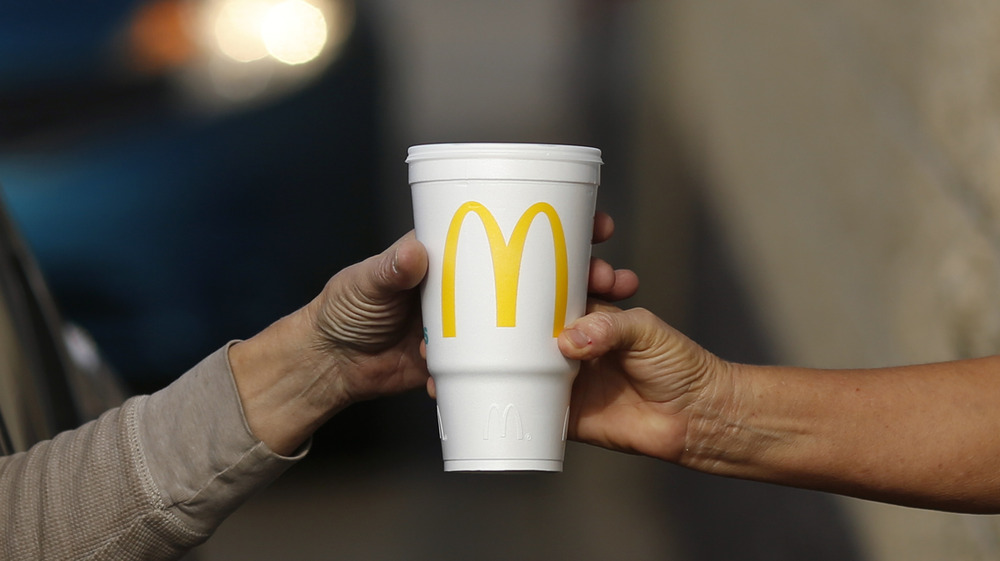Think Twice Before Buying This Shake At McDonald's
Icey Coke, sundaes, and apple pies. While there are a number of tasty ways to end a meal at McDonald's, according to Dr. Nicole Avena, a research neuroscientist, you should probably skip the shake. As an expert in the fields of nutrition, diet, and addiction, and author of What to Feed Your Baby and Toddler, Dr. Avena warns about the nutritional impacts of sugary foods like the Large Chocolate Shake at McDonald's. The Golden Arches describe these shakes as being made with vanilla reduced fat ice cream, chocolate shake syrup, and whipped light cream (via McDonald's). We can verify the drinks, or shall we say dessert, are tasty, but despite words like "reduced fat" and "light cream," these treats aren't exactly healthy foods.
A large shake has a reported 830 calories, 21 grams of fat, 139 grams of carbs, and in better news, 19 grams of protein. Corn syrup and sugar feature heavily in the ingredient list, as do preservatives and structural/textural additives like carrageenan. For those wondering, carrageenan is derived from red seaweed and gives many foods a smoother consistency (via Healthline). While this additive is technically labeled as safe and natural, limited studies have shown it can potentially increase inflammation and digestive distress. Increased inflammation has been linked to diseases like inflammatory bowel disease, arthritis, and tendonitis.
How McDonald's shakes compare to other chains
Dr. Avena explained to Mashed that if you compare the Large Chocolate Shake to other chains' shakes, McDonald's chocolate isn't the worst. "This shake has a lower calorie count as well as lower fat content compared to other popular decadent fast food shakes, such as Baskin Robbins Large Chocolate Chip Cookie Dough Milkshake, Arby's Large Jamocha Shake, Denny's Cake Batter Shake and Sonic's Large Oreo Peanut Butter Shake, but its sugar content is still over 3x the daily recommended amount," she explained, citing listed nutritional guidelines (via The Cleveland Clinic).
Understanding these guidelines, it's important to remember that certain foods aren't meant to be everyday items. It's easy to think that cost and convenience mean we can eat something tasty more often, but excess consumption can begin to affect our health quite quickly. Instead, follow the advice of nutritionists like Dr. Avena and realize how this shake might fit into the rest of your daily — and weekly — diet. So next time you think about having that tasty chocolate shake, consider how it will affect your total nutrition. You may want to think twice.

